Lessons learned and taking the next step towards low carbon shipping
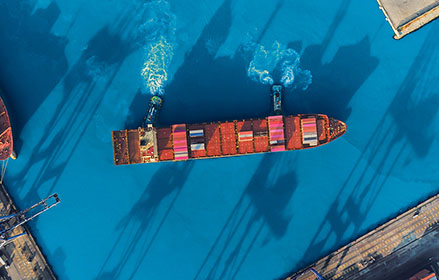
The International Maritime Organization (IMO) wants to reduce international shipping’s carbon intensity by at least 40% by 2030, moving to 70% by 2050, compared with 2008. At the same time, it aims to reduce absolute greenhouse gas emissions by 50% over the same period, using the same metric. To meet these bold targets, the marine industry will need to develop new low/zero carbon fuels and propulsion technologies.
From a vessel operator’s perspective there is a range of issues that will need to be addressed, not least the likely changes to the marine fuel mix. To evaluate the likely impact of the proposed revisions, ExxonMobil invited senior figures from around the maritime industry to provide their insights into how the marine industry should approach future emission regulations.
“Vessel operators are struggling over what might be the right choice of fuels for the future and how long they can continue to use conventional formulations,” according to Christos Chryssakis, senior researcher, DNV. “It’s a very complex and uncertain picture. The choice isn’t just about cost – it’s also about performance and that might impact the speed of a vessel. There are clear operational considerations.”
Vessel operators will therefore need to take into account:
- The fuel options that best meet their operational needs
- Which ports will bunker these fuels
- What cylinder oils will be needed to ensure ongoing engine protection
Maintaining continuity of operation
“If a fuel becomes too complicated to use, even if it’s cheap, we’re not going to go for that. Knowing the bunker industry, we’ll want our fuel choices to be as easy as possible to handle and use. Bunkering hiccups simply aren’t acceptable,” explains Lars Malmbratt, general manager marine fuels, Stena Bulk. “The lower price can sometimes be eaten up by extra waiting time, caused by handling issues. Smooth operation and widespread availability may come with a price, but it could be worth accepting.”
Training will be hugely important, says Ashley Jenkins, Director, John H Whitaker (Tankers). “The responsible officers aboard both the delivery barge and the receiving vessel are skilled professionals but the training for handling, product segregation, storage and use will need to be delivered in a timely and instructional manner. It will therefore be increasingly important for ship owners to source fuel from reputable suppliers who will develop training as part of their supply offer, as well as reliable quality of the product itself, of course.”
Dr Maximilian Rothkopf, Chief Operating Officer, Hapag-Lloyd, believes there are imminent issues for new-building vessel orders. “These usually have a delivery schedule of two years and a life span of 25 years. Using engine technology that provides flexibility and the ability to also burn fuels developed in the future becomes one of the key drivers.” Hapag-Lloyd´s path to decarbonisation includes dual fuel tonnage, with LNG playing a first step role, he explained.
ExxonMobil believes there are very few challenges more important than meeting the world’s growing demands for energy while also reducing environmental impacts and the risks of climate change. This is the task in front of us and at ExxonMobil we have a long-standing commitment to do our part, across all the industries and sectors we serve, including marine.
To read more of this industry discussion, click here.
More Fuel for Thought
-
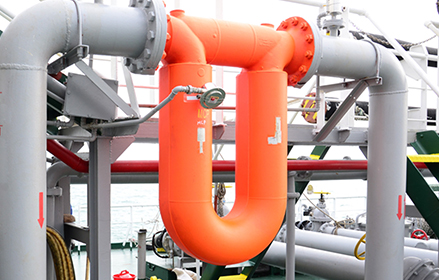
Singapore study confirms bunker benefits of using mass flow metering
Research conducted in Singapore shows the effectiveness and financial benefits of using a mass flow metering system (MFMS).
Read more -
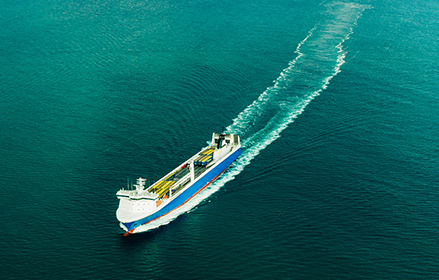
Cracking the cat fines challenge
Learn more about the damage that fuels with a high content of catalytic fines can cause and how best to minimise the risks they pose.
Read more -
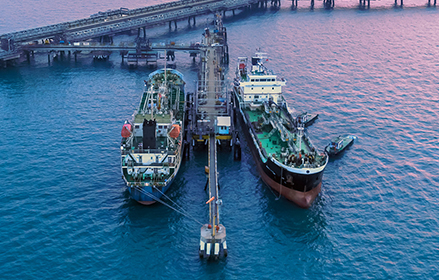
Rising to the challenge of meeting global energy needs and emission targets
Explore the complexities posed for vessel operators by the IMO’s ambition to reduce the carbon intensity of the shipping industry.
Read more
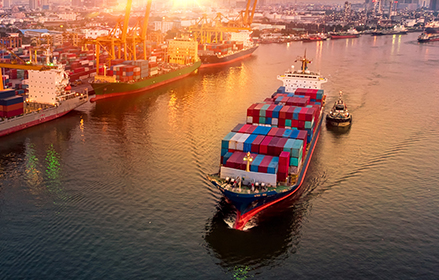
Marine Fuels
Learn more about our range of high-quality marine fuels that help safeguard your engine and comply with the latest IMO regulations.
Read more
Ports Directory
Through our global network, we deliver the right fuels and lubricants, at the right time, to the right place. Use our interactive tools to discover which lubricants or fuels are available in your market.
Read more
